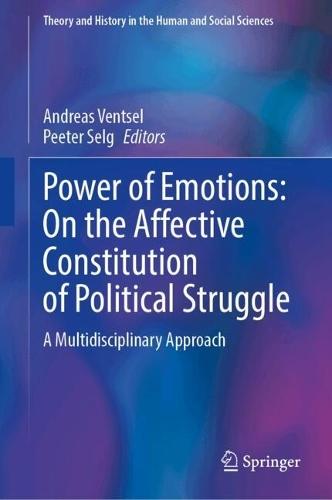Overview
The emergence of political identities and communities in (social) media is largely driven by affective responses to current events—a tendency facilitated by the dominance of emotionally and visually oriented communication. However, this mode of community formation leads, first, to the inherent instability and transience of these groups and, second, to the oversimplification of complex socio-political issues into binary, yes/no alternatives. Within this framework, deliberation and argumentation-based problem-solving become increasingly difficult, as discourse is supplanted by emotional reactions that position individuals either “for” or “against” an issue. Particularly significant is the role of affect and emotion in communication during times of crisis—whether in the context of migration, the COVID-19 pandemic, or the war in Ukraine. This affective role is evident in the anchoring of public discourse to personal emotions and the generation and dissemination of hashtags and tags that consolidate diverse phenomena under a unified label. Such collective identity coalesces around connective action, which is primarily driven either by opposition to the established order or by the reinforcement of a preexisting system’s foundations. Consequently, the emergence of these affective publics must be analyzed within the broader context of power dynamics and evolving forms of identification in the contemporary media sphere—forms rooted in shared practices of expression, action, and interpretation. This edited volume will explore the manifestations of affective semiosis (meaning-making) at the socio-cultural and discursive levels. Cultural context, emotional reactions, and affective semiosis play a crucial role in shaping how issues related to identity and security are articulated in both domestic and foreign policy, as well as in the ways solutions to these challenges are sought. By adapting the concept of affective semiosis for the analysis of discursive structures, this volume offers an innovative and effective approach to identifying the triggers of emotional reactions in discourse and examining their impact on the construction of political identities, fear scenarios, misinformation campaigns, polarization, and other dynamics within networked societies. The volume includes both theoretically oriented papers as well as analyses of empirical materials.
Full Product Details
Author: Andreas Ventsel ,
Peeter Selg
Publisher: Springer International Publishing AG
Imprint: Springer International Publishing AG
ISBN: 9783031897405
ISBN 10: 3031897404
Pages: 252
Publication Date: 12 July 2025
Audience:
Professional and scholarly
,
Professional & Vocational
Format: Hardback
Publisher's Status: Active
Availability: Not yet available

This item is yet to be released. You can pre-order this item and we will dispatch it to you upon its release.
Author Information
Andreas Ventsel is a Professor of Political and Sociosemiotics in Department of Semiotics at Tartu University, Estonia. He holds an MA degree (University of Tartu, 2005) and a PhD (University of Tartu, 2009) in Semiotics. His research is interdisciplinary including semiotics, discourse theory, international relations, security studies, information influence studies and political analysis. Ventsel has presented the results of his research among other outlets in Media, War & Conflict, European Security, Armed Force & Society, Theory, Culture & Society, Social Semiotics, Semiotica and been the initiator and editor of several scientific journals, both Estonia-based and international. He is the author of the books Strategic Conspiracy Narratives: A Semiotic Approach (Routledge 2021, with Mari-Liis Madisson from the University of Tartu) and Introducing Relational Political Analysis: Political Semiotics as a Theory and Method (Palgrave Macmillan 2021, with Peeter Selg from Tallinn University). Ventsel is a member of International Association for Semiotic Studies, International Association for Visual Semiotics, International Surveillance Studies Network and Estonian Semiotic Society. Peeter Selg, PhD, is Professor of Governance and Political Analysis in the School of Governance, Law and Society at Tallinn University, Estonia. His main research interests include relational sociology, political semiotics, power, governance, and wicked problems. His work has been published among other outlets in Sociological Theory, PS: Political Science & Politics, Journal of Political Power, International Relations, International Review of Sociology, Social Semiotics, Journal of Language and Politics, Semiotica, and Sign Systems Studies. His recent books are titled Introducing Relational Political Analysis: Political Semiotics as a Theory and Method (Palgrave Macmillan 2021, with Andreas Ventsel, University of Tartu) and A Relational Approach to Governing Wicket Problems: from Governance Failure to Failure Governance (Palgrave Macmillan 2023, with Georg Sootla and Benjamin Klasche from Tallinn University). He is the editor (with Nick Crossley from the University of Manchester) of the book series “Palgrave Studies in Relational Sociology”.




